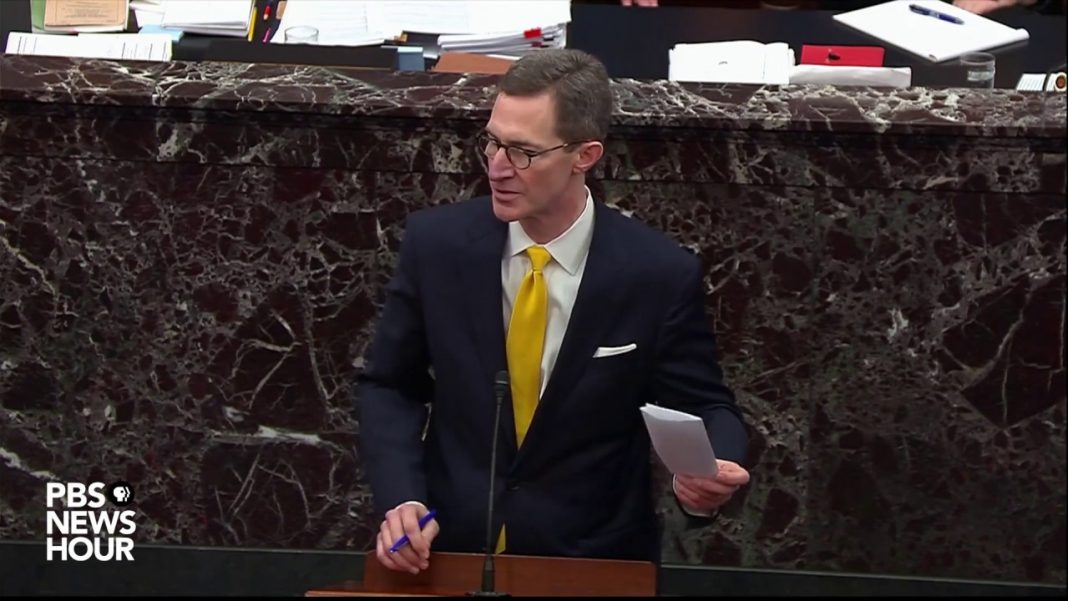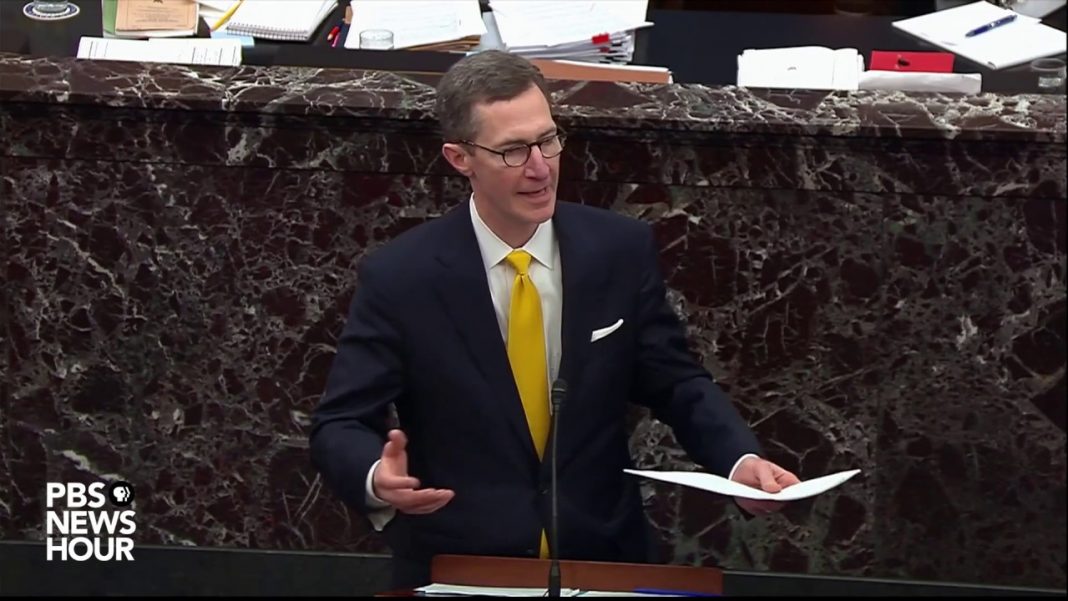Watch the video and read the transcript of Alan Dershowitz’s discussion of Quid Pro Quo during the 8th day of the Trump Impeachment trial in the Senate.
Read Transcript:
Chief Justice: The question is addressed to Counsel for the President. As a matter of law does it matter if there was a quid pro quo? Is it true the quid pro quos are often used in foreign policy?
Alan Dershowitz: Chief Justice. Thank you very much for your question. Yesterday I had the privilege of attending the rolling out of a peace plan by the President of the United States regarding the Israel-Palestine conflict and I offered you a hypothetical the other day. What if the democratic president where to be elected and Congress were to authorize much money to either Israel or the Palestinians, and the democratic president were to say to Israel, ‘No I’m going to withhold this money unless you stop all settlement growth’, or to the Palestinians, ‘I will withhold the money Congress authorized to you unless you stop paying terrorist. And the President said, ‘quid pro quo, if you don’t do it, you don’t get the money, if you do it, you get the money.’ There’s no one in this chamber that would regard that as in any way unlawful. The only thing that would make a quid pro quo unlawful is if the quo were in some way illegal.
Now, we talk about motive. There are three possible motives that a political figure can have one a motive in the public interest and the Israel argument would be in the public interest. The second is in his own political interest and third, which hasn’t been mentioned, would be in his own financial interest, his own pure financial interest, putting money in the bank. I want to focus on the second one for just one moment. Every public official that I know believes that his election is in the public interest and, mostly you right, your election is in the public interest, and if a president does something which he believes will help him get elected in the public interest, that cannot be the kind of quid pro quo that results in impeachment.
I quoted President Lincoln. When President Lincoln to General Sherman to let the troops go to Indiana so that they can vote for the Republican Party, let’s assume the president was running at that point and it was in his electoral interest to have these soldiers put it risk the lives of many, many other soldiers who would be left without their company. Would that be an unlawful quid pro quo? No, because the President, A believed that it was in the National interest, but B he believed that his own election was essential to victory in the Civil War.
Every president believes that, that’s why it’s so dangerous to try to psychoanalyze a president, to try to get into the intricacies of the human mind. Everybody has mixed motives, and for there to be a constitution impeachment based on mixed motives would permit almost any president to be impeached.
How many presidents have made foreign policy decisions after checking with their political advisors and their pollsters? If you’re just acting in the National interest, why do you need pollsters? Why do you need political advisors? Just do what’s best for the country. But if you want to balance what’s in the public interest with what’s in your party’s electoral interest, in your own electoral interest, it’s impossible to discern how much weight is given to one to the other.
Now, we may argue that it’s not in the National interest for a particular president to get reelected, or for a particular senator or member of Congress, and maybe we’re right. It’s not in the National interest for everybody who’s running to be elected. But for it to be impeachable you would have to discern that he or she made a decision solely on the basis of, as the house manager put it, corrupt motives, and it can’t be a corrupt motive if you have a mixed motive that partially involves a national interest, partly involves electoral, and does not involve personal pecuniary interests, and the house managers do not allege that this decision, this quid pro quo as they call in the question, is based on the hypothesis that was a quid pro quo, I’m not assessing the facts, they never alleged that it was based on pure financial reasons.
It would be a much harder case if a hypothetical president of the United States said to a hypothetical leader of a foreign country ‘unless you build a hotel with my name on it, and unless you give me a million dollar kick back, I will withhold the funds.’ That’s and easy case. That’s purely corrupt and in the purely private interest, but a complex middle case is, ‘I want to be elected, I think I’m a greatest president there ever was, and if I’m not elected, the national interest will suffer greatly. That cannot be an impeachable offense, Thank you, Chief Justice.






